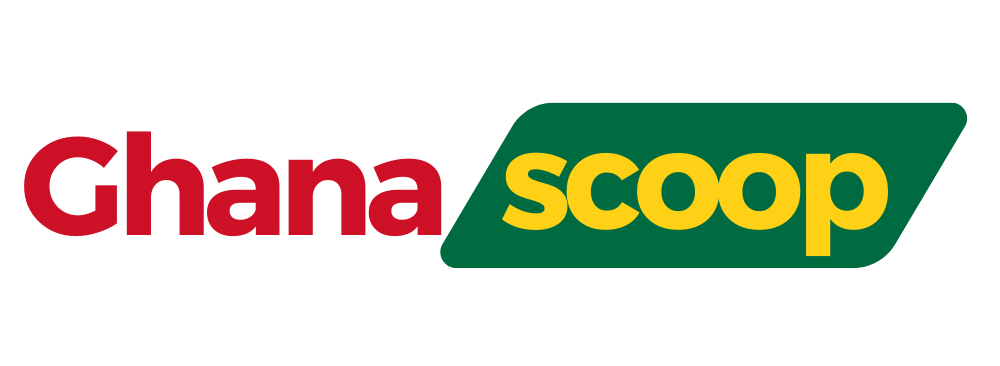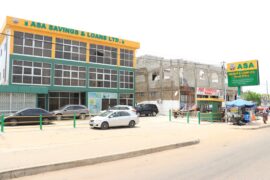Key Takeaways
- Students can access educational loans, government-backed loans, and specialized loans for various fields of study and institutions in Ghana.
- Workers can benefit from microloans, skill development grants, and emergency funds provided by employers and non-profits for immediate financial assistance.
- Business loans in Ghana include term loans for investments, working capital loans for daily expenses, and equipment financing to support entrepreneurial growth.
- It is crucial to plan and borrow responsibly by understanding loan terms, assessing financial needs, and maintaining a budget for effective repayment.
- Microfinance institutions offer tailored financial products but face challenges like high interest rates and limited financial education for borrowers.
Understanding the Loan Landscape in Ghana
Although the loan landscape in Ghana has evolved considerably over the past decade, it remains characterized by a complex interplay of various financial institutions and regulatory frameworks. The sector comprises commercial banks, microfinance institutions, and credit unions, each serving distinct customer needs. Regulatory oversight, primarily by the Bank of Ghana, aims to guarantee stability and consumer protection, yet challenges persist, including high-interest rates and limited access for underserved populations. The introduction of digital lending platforms has begun to reshape the market, facilitating quicker loan disbursements and enhancing financial inclusion. However, the lack of extensive credit histories for many borrowers complicates risk assessment, potentially stifling growth in certain segments. Understanding these dynamics is vital for stakeholders maneuvering the evolving financial ecosystem.Types of Loans Available for Students
In Ghana, students have access to various financial resources designed to facilitate their education. Educational loan options, alongside scholarships and grants, provide critical support for those seeking higher learning. Understanding these types of funding can greatly impact a student’s ability to pursue their academic goals without the burden of overwhelming debt.
5 reasons you must stop taking loans from mobile apps
Your phone buzzes at 2pm: “Congratulations! You’ve been pre-approved for GH₵2,000. Get cash in 5 minutes!” It’s tempting perhaps it’s mid-month, your salary’s already spent, or you urgently need money for a phone or transport fare. But before you tap ‘Download or Apply Now’, understand
Educational Loan Options
Educational loans in Ghana play an essential role in supporting students’ academic aspirations by providing the necessary financial assistance to cover tuition fees and other related expenses. Various educational loan options are available, tailored to meet diverse student needs. Government-backed loans often offer lower interest rates and flexible repayment terms, making them accessible to many. Private financial institutions also provide loans with competitive terms, but they may require collateral or a guarantor. Additionally, some banks offer specialized loans that cater to specific fields of study or institutions, enhancing the educational experience. Understanding these options allows students to make informed decisions, ensuring they can focus on their studies without undue financial burden while pursuing their academic goals.Scholarships and Grants
Numerous scholarships and grants are available in Ghana, providing essential financial support to students pursuing higher education. These funding opportunities considerably alleviate the burden of tuition fees and living expenses, enabling students to focus on their studies. Scholarships are typically merit-based or need-based, while grants often cater to specific fields or demographics.| Type of Funding Description |
| Government Grants | Offered to students from low-income families. |
| Private Scholarships | Funded by organizations and individuals, often based on academic merit. |
| University Grants | Provided directly by institutions to support specific programs. |
| International Scholarships | Funded by foreign governments or organizations for Ghanaian students. |
| Research Grants | Support for postgraduate students conducting research projects. |
Financial Aid Options for Workers
While many workers in Ghana face financial challenges, various aid options are available to help alleviate their burdens. These financial aid options provide essential support to individuals working to improve their economic situations.- Microloans: These small loans are designed to support workers who need immediate financial assistance for personal or professional needs, often with lower interest rates and flexible repayment terms.
- Skill Development Grants: Various organizations offer grants aimed at enhancing workers’ skills, enabling them to secure better job opportunities or increase their earning potential.
- Emergency Funds: Some employers and non-profits provide emergency financial assistance to help workers cope with unexpected expenses, ensuring they can maintain their livelihoods during tough times.
Business Loans: Fueling Entrepreneurial Growth
Business loans serve as an essential catalyst for entrepreneurial growth in Ghana, offering various types that cater to diverse business needs. Understanding the application process is vital for entrepreneurs seeking to leverage these financial resources effectively. Additionally, the benefits of financing extend beyond mere capital infusion, providing opportunities for expansion and innovation in the competitive market landscape.Types of Business Loans
Understanding the diverse types of business loans available in Ghana is essential for entrepreneurs seeking to fuel their growth and innovation. Various financing options cater to different business needs, allowing entrepreneurs to select the most suitable one for their ventures.- Term Loans: These are fixed-amount loans with a repayment schedule, ideal for major investments or expansion.
- Working Capital Loans: Designed to cover daily operational expenses, these loans help maintain liquidity in a business.
- Equipment Financing: This type allows businesses to purchase necessary equipment without depleting cash reserves, often secured by the equipment itself.
Best Point Savings and Loans Ghana – Services and Loan PackagesNavigate the diverse financial services of Best Point Savings and Loans Ghana and discover unique loan packages tailored just for you. What could they offer?
Application Process Overview
Steering the application process for business loans in Ghana can be an essential step for entrepreneurs aiming to enhance their ventures. The process typically begins with entrepreneurs identifying suitable lenders, which may include banks or microfinance institutions. Applicants must then gather essential documentation, including business plans, financial statements, and identification. This documentation is vital as it provides lenders with insights into the business’s viability and repayment capacity. Following this, entrepreneurs submit their applications, often accompanied by a detailed proposal outlining the intended use of the funds. Lenders assess applications based on various criteria, such as credit history and business performance. Ultimately, a well-prepared application can greatly increase the likelihood of securing the necessary financing for growth.Benefits of Financing
While many entrepreneurs may initially hesitate to pursue financing, the benefits of business loans in Ghana can be significant, often serving as a catalyst for growth and innovation. Accessing these funds allows businesses to expand operations, invest in new technologies, and enhance their market presence. The key advantages include:- Capital for Expansion: Business loans provide necessary funds to scale operations, hire staff, or enter new markets, facilitating growth.
- Cash Flow Management: Financing options help manage cash flow effectively, ensuring that day-to-day operational costs are met without hindrance.
- Opportunity for Innovation: With additional resources, businesses can invest in research and development, fostering innovation and competitiveness in the marketplace.
Key Considerations When Applying for a Loan
When considering a loan in Ghana, individuals must take into account several vital factors that can greatly impact their financial well-being. First, understanding the interest rates is essential, as they can vary considerably among lenders. Borrowers should also assess their creditworthiness, as this affects loan approval and terms. Additionally, the loan amount and repayment period should align with their financial capabilities to avoid overextending themselves. It is important to read the fine print, including any hidden fees or penalties for late payments, which can escalate the overall cost of borrowing. Finally, having a clear plan for how the loan will be utilized can enhance the chances of successful repayment and help achieve the intended financial goals.The Role of Microfinance in Supporting Borrowers
Microfinance plays an essential role in supporting borrowers in Ghana, particularly those who lack access to traditional banking services. It provides vital financial resources that empower individuals and small businesses to thrive. The advantages of microfinance include:- Accessibility: Microfinance institutions often have fewer barriers to entry, allowing low-income individuals and entrepreneurs to secure funding.
- Tailored Financial Products: These institutions offer customized loan products designed to meet the unique needs of borrowers, facilitating better repayment terms and conditions.
- Financial Literacy: Many microfinance programs incorporate education on money management, helping borrowers improve their financial skills and make informed decisions.
Challenges Faced by Borrowers in Ghana
Despite the benefits that microfinance provides, borrowers in Ghana encounter a range of challenges that can impede their financial progress. One significant issue is the high interest rates associated with loans, which often exceed reasonable limits, placing borrowers in precarious financial situations. Additionally, many borrowers lack access to extensive financial education, leading to poor decision-making and mismanagement of funds. There is also a prevalent issue of inadequate collateral requirements, which can exclude potential borrowers who lack assets. Moreover, limited access to information about available financial products complicates the borrowing process, resulting in missed opportunities. Finally, economic instability and fluctuating currency values can affect borrowers’ ability to repay loans, ultimately hindering their long-term financial growth and development.Tips for Responsible Borrowing and Financial Management
How can borrowers in Ghana navigate the complexities of financing while guaranteeing their financial well-being? Responsible borrowing and effective financial management are essential for sustainable economic growth. Here are three important tips:- Assess Financial Needs: Borrowers should evaluate their actual financial requirements to avoid over-borrowing, which can lead to unmanageable debt.
- Understand Loan Terms: It is critical to read and comprehend the terms of the loan agreement, including interest rates, repayment schedules, and any hidden fees.
- Create a Budget: Developing a realistic budget that accounts for loan repayments alongside other expenses guarantees borrowers maintain financial stability and avoid default.
Frequently Asked Questions
What Documents Are Required to Apply for a Student Loan?
The current question revolves around the necessary documentation for obtaining a student loan. Typically, applicants must provide proof of identity, academic enrollment, financial statements, and a guarantor’s information to facilitate the approval process.How Do I Improve My Credit Score Before Applying for a Loan?
To improve a credit score before applying for a loan, individuals should consistently pay bills on time, reduce outstanding debts, maintain low credit utilization, and regularly check credit reports for inaccuracies or fraudulent activities.Are There Any Penalties for Early Loan Repayment?
In general, early loan repayment may incur penalties, depending on the lender’s policies. These fees are designed to compensate for lost interest. Borrowers should review terms carefully before deciding to pay off loans prematurely.How Long Does It Take to Get Loan Approval in Ghana?
The duration for loan approval in Ghana typically ranges from a few days to several weeks. Factors influencing this timeline include the institution’s policies, applicant documentation, and the nature of the loan sought.Can I Apply for Multiple Loans Simultaneously?
The ability to apply for multiple loans simultaneously varies by financial institution. Typically, lenders assess an applicant’s creditworthiness and financial stability, which can influence approval chances. Managing multiple loans requires careful consideration of repayment obligations.Conclusion
To sum up, the loan landscape in Ghana presents diverse opportunities for students, workers, and entrepreneurs, fostering economic development and personal growth. While various financial aid options are available, borrowers must navigate challenges such as high-interest rates and repayment terms. By understanding the intricacies of loan types and embracing responsible borrowing practices, individuals can effectively leverage these financial resources to enhance their educational, professional, and business endeavors, ultimately contributing to the nation’s economic progress.Discover more from Ghana Scoop
Subscribe to get the latest posts sent to your email.





